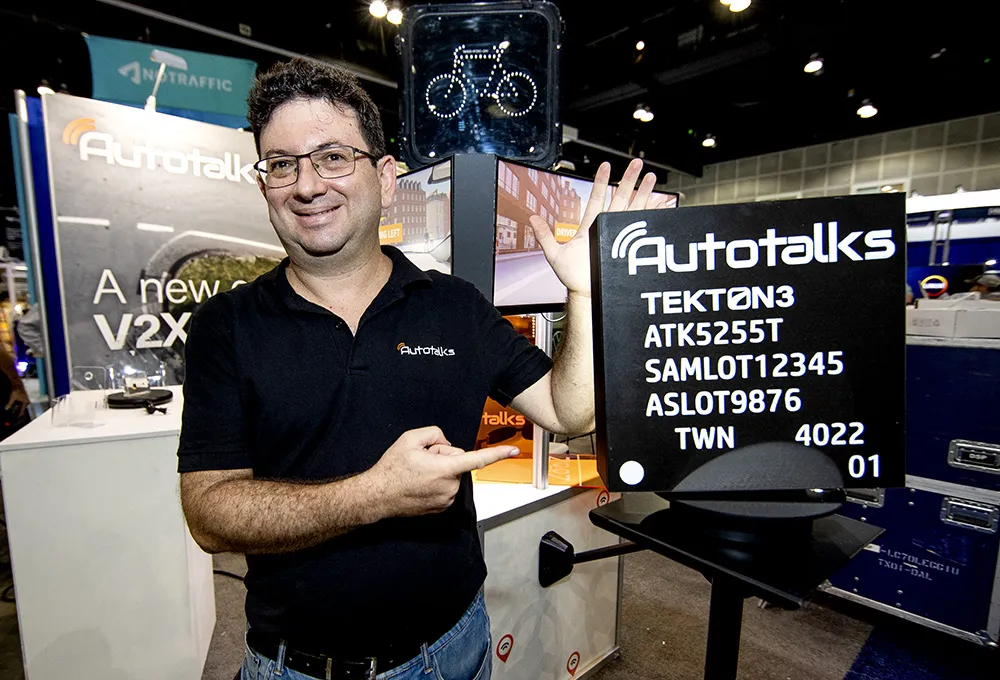The European Commission has adopted a European Strategy on Cooperative Intelligent Transport Systems (C-ITS), a milestone towards cooperative, connected and automated mobility. The Strategy will make it possible to deploy vehicles that can communicate with each other and the infrastructure on EU roads as of 2019.
Digital connectivity is expected to significantly improve road safety, traffic efficiency and comfort of driving, while boosting the market of cooperative, connected and automated driving and th
December 1, 2016
Read time: 2 mins
The European Commission has adopted a European Strategy on Cooperative Intelligent Transport Systems (C-ITS), a milestone towards cooperative, connected and automated mobility. The Strategy will make it possible to deploy vehicles that can communicate with each other and the infrastructure on EU roads as of 2019.
Digital connectivity is expected to significantly improve road safety, traffic efficiency and comfort of driving, while boosting the market of cooperative, connected and automated driving and the related creation of jobs.
The strategy aims to avoid a fragmented internal market and provide definition and support of common priorities. It plans to use a mix of communication technologies and to address security and data protection issues .It foresees the adoption of the appropriate legal framework at EU level by 2018 to ensure legal certainty for public and private investors. It also addresses the availability of EU funding for research and development projects and international cooperation, such as at the G7 level, on all aspects related to cooperative, connected and automated vehicles.
It also involves continuous coordination, in a learning-by-doing approach, with the C-ROADS platform, which gathers real-life deployment projects in Member States. With the help of the Connecting Europe Facility (CEF), projects in Austria, Belgium, the Czech Republic, Denmark, Finland, France, Germany, the Netherlands, Norway, Slovenia, Spain, Sweden and United Kingdom have received funding.
According to Lars Reger, CTO Automotive,566 NXP Semiconductors, the EU decision to include a dedicated automotive wireless communication protocol in its newly decided ITS master plan is the right choice at the right time. He says, “It reflects NXP’s findings after 10 years of research and V2X field-testing: Only a dedicated automotive wireless communication (802.11p) protocol can cover safety critical use cases, such as platooning and emergency braking. These and other types of autonomous decisions require extremely fast communications (low latencies) that cellular networks cannot achieve currently.
“Cellular networks still need further research, standardisation, field-testing and full network coverage. This EU decision sets the cornerstone for very important choices related to the European “Strategy on vehicles of the future” to be defined in 2017.”
Digital connectivity is expected to significantly improve road safety, traffic efficiency and comfort of driving, while boosting the market of cooperative, connected and automated driving and the related creation of jobs.
The strategy aims to avoid a fragmented internal market and provide definition and support of common priorities. It plans to use a mix of communication technologies and to address security and data protection issues .It foresees the adoption of the appropriate legal framework at EU level by 2018 to ensure legal certainty for public and private investors. It also addresses the availability of EU funding for research and development projects and international cooperation, such as at the G7 level, on all aspects related to cooperative, connected and automated vehicles.
It also involves continuous coordination, in a learning-by-doing approach, with the C-ROADS platform, which gathers real-life deployment projects in Member States. With the help of the Connecting Europe Facility (CEF), projects in Austria, Belgium, the Czech Republic, Denmark, Finland, France, Germany, the Netherlands, Norway, Slovenia, Spain, Sweden and United Kingdom have received funding.
According to Lars Reger, CTO Automotive,
“Cellular networks still need further research, standardisation, field-testing and full network coverage. This EU decision sets the cornerstone for very important choices related to the European “Strategy on vehicles of the future” to be defined in 2017.”









